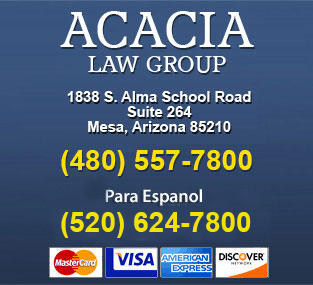Interviewer: How do the courts look at it and prosecutors? How do they look at it, because I’m sure they would look at it differently from obviously the person that did the act versus the store that had the financial incentive behind them. What have you noticed about that?
Acacia Law: Yes. that’s where I can usually intervene and do a lot of good. The difference is that my job, I believe I stated this the last time we talked, Rich. Was that my job is to present them as people, as human beings. Because ultimately, what happens is that if you don’t show a court that this is a real person with real problems or has made a mistake and is a very good law abiding citizen otherwise, then all you have is statistics. It’s my job to present the individual in the most favorable light to the court. And that means that I utilize whatever information I can about the person to present them as either a person who’s made a mistake, a person who suffers from serious mental illness, or a person who simply doesn’t have any money, and is trying to obtain some sort of goods to live.
Interviewer: Hmm.
Acacia Law:The thing is that all these people have a story. It’s my job to present their story to the court, so that the judge sees them as people. The fundamental problem that I see a lot of times with representation that I’ve seen of some individuals, is that they are never presented by whoever is representing them as the people that they really are. They never convey to the court or to the prosecutor that they are not dealing with a docket number. They are dealing with a person. I want them to know who this person is. I want them to see that this is a real live person, with a real life family, under real life circumstances who either made a mistake, or has a mental illness, or who just simply tried to play a prank but look at their record, look at all they do for the community. They just made a mistake here. It’s those things that can make all the difference in the world in how a prosecutor or a judge will examine, observe and evaluate that particular defendant.
Interviewer: I was just taking a moment to think for a second. This is really interesting though, by the way. I mean, I think it’s fascinating all the stuff that you know.
Acacia Law: Oh, yeah well, after 24 years you kind of just get used to the stuff. I think it’s helpful, people should know it. Again, this is something we should probably spend some more time on. Because this actually, because you’ve addressed this shoplifting you’ve brought into my mind something we can touch on next time we do this, which will be the thefts that people don’t think are thefts, but actually are. Those are the ones where people don’t intend to deprive…
Interviewer: So two questions then. As soon as you started talking about theft and threw out a few kinds of theft, I realized there’s probably a lot of different kinds of theft. If you can, let’s go through a list, we’re not going to cover it today obviously, but all the different kinds of things that fall under theft. Just spit out a laundry list?
Acacia Law: Sure.
Interviewer: And then let’s talk about the ones that people don’t think are thefts, but are. If you can answer those two questions.
Acacia Law: Sure, of course. To address the first question. Again theft is something where you are essentially taking something of value from another person without their consent. That’s more or less the underlying theory behind any theft. You don’t have a legal right to. You have no lawful interest in the property and the property has to have some sort of value. It doesn’t have to be pecuniary, it doesn’t have to relate to monetary, but it has to have some value to the individual. That’s close enough to the statute.

Interviewer: Okay.
Acacia Law: That again ranges from everything from the ones we’ve been addressing today such as shoplifting and all the way up through the stealing of cars, armed robberies. Armed robberies treat them as sort of a violent or dangerous means of theft. Essentially they involve a deadly weapon of some sort or the threat of a deadly weapon in order to extract something from the individual or institution that does not belong to them. Bank robbery for example, or a hold up on the street. Another classification, again a giant class involves what are called ‘burglaries’. Now people mistakenly interchange the terms robbery and burglary which are two completely different things. Robbery is referring to somebody who takes something from another individual or institution by use or threat of force. Burglary, on the other hand, is not. Burglary is something wherein, picture someone breaking into someones house and taking something and leaving, or breaking into their car and leaving. And the victim who owns the property is not present. That’s a burglary. Robberies are actually personal.
Interviewer: Please continue.
Acacia Law: They are personal and there is a threat of force. There has to be some sort of threat of force for a robbery. People always say ‘I was robbed last night’ because someone had broken into their house when everyone was sleeping, no one ever woke up and they went out with say a computer or whatever. That’s not a robbery. The people had no knowledge of it, they weren’t awake, there was no threat or force used in order to obtain the property. Robbery requires and in fact does occur when somebody uses or utilizes a threat of force in order to extract something. In fact, another form of robbery if you want is extortion. If you try to blackmail somebody to try to extract something that again doesn’t belong to you and you do it in a manner that would involve them basically doing something against their will, that’s theft. To get to your second point, in terms of what some people don’t think of as theft, but actually is, involves a whole slew of crimes where somebody has taken something from somebody, but without the intent to permanently deprive them of that. Let me give you a very common example I run into. I have this happen all the time. A teenager takes the parents’ car without their permission. Okay?
Interviewer: Yes.
Acacia Law: The parents get mad. They want to teach the kid a lesson. They call the police and advise them that their kid has taken their vehicle without their permission.
Interviewer: Right.
Acacia Law: The police locate the vehicle, arrest the individual. That’s theft. That’s a class five theft of means of transportation. What that is, is a situation where in fact it’s a temporary taking of something of value from someone, without the intent to permanently deprive them. This example, and the reason I’m using this is because it’s the easiest one to visualize.
Interviewer: Okay.
Acacia Law: The teenager is taking the vehicle maybe to go out for the evening, even though the parents said “No, we don’t want you to.” He obviously coming home later on that evening. He’s not taken the vehicle to sell it, to get rid of it, to keep it for ever.
Interviewer: Okay.
Acacia Law: That’s still theft though, and it’s a felony. And I’ve had many parents regret, because they wanted to teach their kids a lesson. They thought that the police would simply warn them or try to scare them, but they don’t.
Interviewer: Sure.
Acacia Law: The bottom line is at that point, a felony has been committed and they normally have no alternative but to submit it as such.


